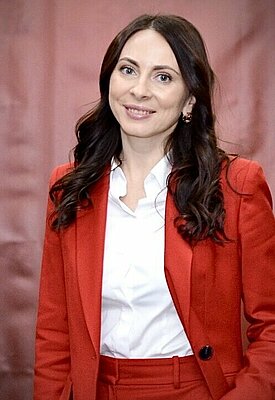Dr. Nataliia Andrusiak
Ukraine Fellow

Dr. Nataliia Andrusiak
Ukraine Fellow
| Office | RECET, Spitalgasse 2, Hof 1.1., 1090 Vienna |
|---|
Nataliia Andrusiak is a professor of Economics at the Department of Business Economics, Accounting and Auditing at the National University of Cherkasy, Ukraine, and a fellow in RECET's Endangered Scholars Fellowship Programm.
Research interests:
- ecological and economic competitiveness of regions
- labour market resources and digital entrepreneurship
Current project:
Temporarily Displaced Persons from Ukraine in the European Union: Social Adaptation and Labour Market Integration
The project is based on the premise that the social adaptation and labour market integration of temporarily displaced Ukrainians are closely related. Russian aggression against Ukraine has caused the greatest refugee movement of the civilian population since the end of World War II in Europe. Within one month, more than 4 million people have been forced to flee Ukraine (about 90% of them women and children), and 6.5 million have had to relocate within Ukraine itself. For many EU member states and their societies, the influx of Ukrainian refugees has created not only a considerable humanitarian challenge but also a social and economic one. The project will focus on two EU countries from a comparative perspective. The first is Poland, which shares a direct border with Ukraine and has taken in around 2.6 million refugees. The country has been a major destination of both labour migrants and refugees from Ukraine in the last decade and shares many cultural and linguistic ties with Ukraine (the Ukrainian and Polish languages are closely related, although not completely interlegible). The second country we will examine in this context is Austria, which has not been one of the main hubs of Ukrainian migration until now. More than 50,000 temporarily displaced Ukrainians have arrived in Austria so far, many of them in Vienna.
The current migration movements need scientific scrutiny in order to identify a number of new challenges, particularly due to the large number of people transferred to the EU from Ukraine in a very short period. The situation of many Ukrainians in the EU is compounded by feelings of sudden uprooting, trauma by experiences of war and loss and fear for loved ones who are still in Ukraine. The project envisions an in-depth study of the integration processes of displaced persons into the social and economic spheres in Austria and Poland. The study will examine the social adaptation and employment processes of Ukrainians in Austria and Poland. The results will provide a guideline for decision-making by government agencies and NGOs in order to optimise the stay of displaced persons and efficiently use human resources, support socio-economic success and forecast future developments using economic modelling.